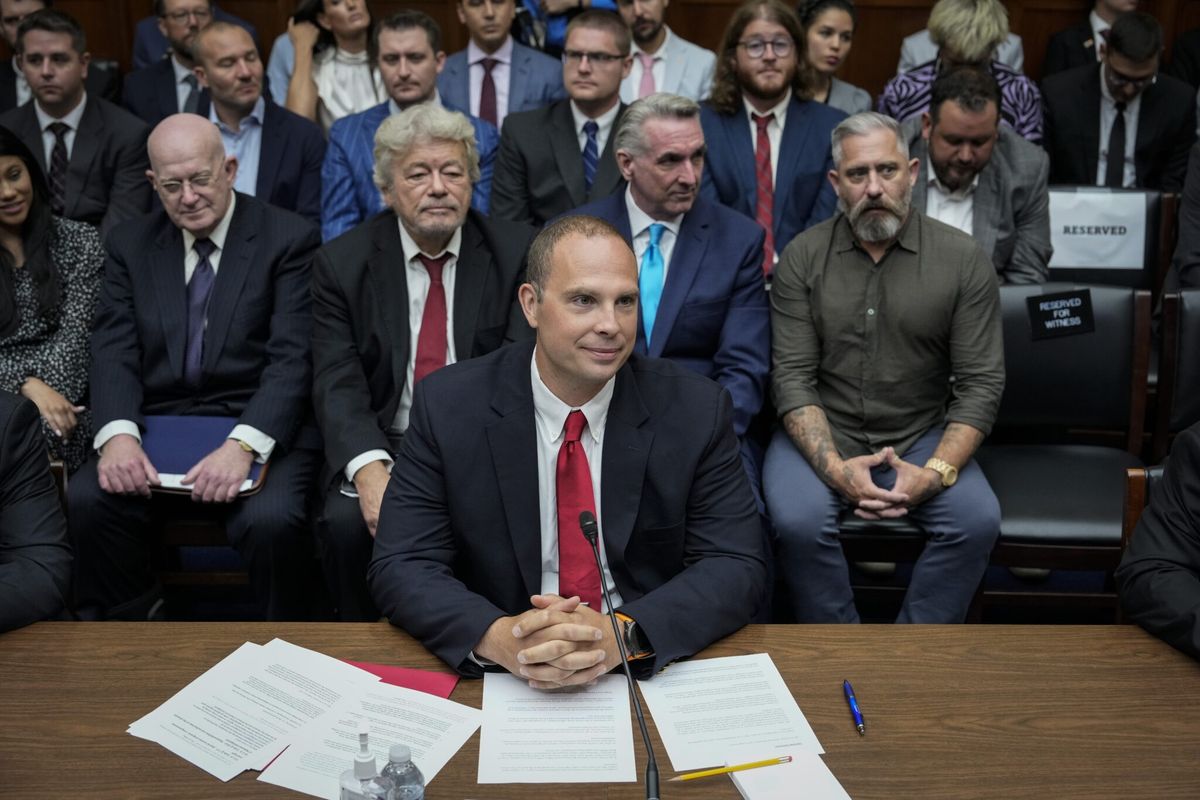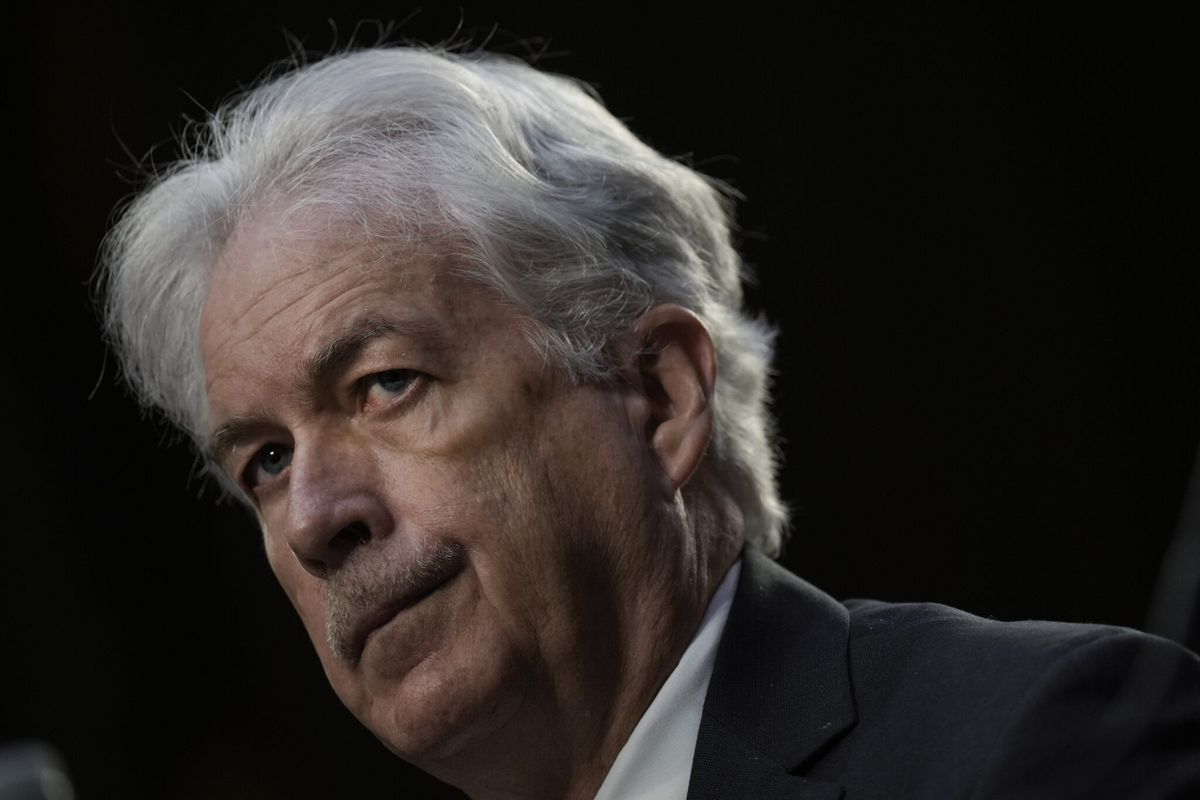OPINION — Today, it is not the phone companies but those that deal in data that connect the world. Amazon, Microsoft, and Google are leading the charge. Large data centers offer remote “cloud” computational services for rent. Cloud services are increasingly omnipresent facilitating webmail, WhatsApp, pandemic responses, and streaming video. People-to-people and business-to-business connections driven by data centers linked by submarine cables account for $10 trillion in transactions every day.
American industry is again at the forefront of ushering in an era of technology-driven global prosperity and security. Building on the Internet, American ingenuity and investments pioneered an era of cloud connectivity. In war-torn Ukraine, Starlink — a satellite internet constellation developed by the Hawthorne, California-based company SpaceX — with its array of low orbit satellites, maintains connectivity for Ukrainians to repel invading Russians. China is desperately trying to counter American advantage with a $28 billion commitment to dominate Southeast Asia markets. American allies and bystanders are both beneficiaries of cloud connectivity and concerned of the unchecked dominance of American companies in the industry. The time is ripe for American leaders to promote trusted cloud connectivity — in concert with partners committed to human dignity and freedom – to strengthen the Free World, sustain the vitality of American industry, and keep autocratic rivals at bay.
In 2006, Amazon kickstarted the cloud industry by making its excess storage capacity available for other companies to host their data. By 2010 Google and Microsoft had followed suit. With the first mover advantage, the three collectively control more than 60% of the global market, estimated at $500 billion in 2022, and expected to cross $1 trillion by 2030. Over the last year, the three have invested more than $120 billion in data centers that power the global cloud infrastructure.
It's not just for the President anymore.
Are you getting your daily national security briefing? Subscriber+Members have exclusive access to the Open Source Collection Daily Brief, keeping you up to date on global events impacting national security.It pays to be a Subscriber+Member.
China’s Alibaba, fortified by state support and dominance over a protected domestic market many times the size of its competitors, is the fourth largest actor in the global cloud market. China is pushing Alibaba, Tencent, and Baidu to realize its ambitions to dominate the global cloud market. Collectively, the three are industry leaders in the fastest growing market of Southeast Asia, including Indonesia, Thailand, and Vietnam. China is aggressively pushing its expanded roles through its Belt & Road and Safe Cities agreements, and by propagating Alibaba’s Epidemic Prediction Technologies, essentially technology used to evaluate the spread of disease, such as Covid-19.
In addition to Cloud, American companies are also leaders in submarine cables and satellite communication. SubCom, a New Jersey company, is responsible for the deployment and maintenance of over a third of global submarine cables. SubCom, with Japanese NEC and French Alcatel, a subsidiary of Nokia, covers more than 75% of the global submarine cable construction market. American companies also provide the majority of cable fibers and components for cable terminus and transmission. SpaceX is a global leader in low-orbit satellite constellations for communication. Since 2019, with reusable rockets it has launched over 3,500 satellites into the low orbit, building a “StarLink” beaming internet down to areas unserved by traditional broadband. In 2022, it averaged a launch every week in working toward its goal to put about 40,000 satellites in orbit. SpaceX, in addition to “StarLink” is developing “StarShield” in adapting the former for government and military use. Today, SpaceX deploys more objects into orbit than all other companies and countries combined. China and Russia are racing to develop technologies to disrupt the SpaceX technologies and build their own satellite constellations for communications.
American industry, through cloud, satellites and submarine cables, is building the infrastructure for a global digital economy. American dominance needs to be matched and perhaps exceeded by American leadership. America needs to ensure that the sum of American technical leadership is greater than its parts. American supported and secured global digital infrastructure is an engine of free and open markets, catalyzing greater competition and innovation in digital services across all responsible nations. No partner nation can be left behind. America’s autocratic adversaries should never be allowed to undermine the digital infrastructure of the free world.
In short, the United States, a nation of laws, needs to ensure global trust in its earth-spanning digital infrastructure. It can do so by commencing upon a global initiative that ensures data free flow with privacy, security and transparency. Often referred to as a “Trust Cloud,” it needs to offer two basic assurances. One, that the best in business cloud technologies appropriate to the region are deployed. Two, the data in the Cloud meets the global norm for privacy, security and transparency. At present, no such global norm exists. In absence of such a norm, individual actors with large market shares such as Europe and India are enacting laws to set default standards. American interests and those of the Free World are better served with the United States shedding its ambivalence and leading a global effort on the norms and standards of data flows in this "Trust Cloud."
On the go? Listen to the Open Source Report Podcast for your rundown on the biggest national security stories of the day. Also be sure to check out State Secrets for interviews with Cipher Brief experts and national security leaders, as well as Cover Stories for a dive into the entertainment side of espionage.
Listen here or wherever you listen and subscribe to podcasts.
American interests are thus best served by following a two-pronged reinforcing strategy. First, to coordinate closely with the G7 and Indo-Pacific QUAD nations in establishing an expedited representative group to develop "Trust Cloud" data flow norms and standards. In this regard, Japan will be a key partner as the host of G7 this year and a respected champion of data free flow. Second, to prioritize deployment of cloud connectivity and digital infrastructure across the Global South, the United States, drawing upon its Power Africa initiative to engender investments in electrification across the continent, should launch Digital Africa, Digital Americas, and Digital Asia to mobilize public and private funds to expedite these nations equal participation in the global digital economy. Advancing cloud connectivity and digital infrastructure across the Western Hemisphere, Africa, and the Indo-Pacific should be assigned the highest priority for American development finance and commercial agencies. The United States should ensure that this priority is shared by the G7 and the QUAD nations in equal measure.
American industry has led the way in connecting the world and laying the foundations for a global digital economy. The cloud economy is just getting started with still about 70% of computation conducted on local servers. The cloud transformation is underway at a frenetic pace and will fundamentally affect the global economy, opportunity, and security. It will influence a nation’s trajectory and its statecraft. Its sheer scale and impact calls for democratic and market accountability. It calls for this "Trust Cloud." The United States should lead the way in bringing it to reality.
The Cipher Brief is committed to publishing a range of perspectives on national security issues submitted by deeply experienced national security professionals.
Opinions expressed are those of the author and do not represent the views or opinions of The Cipher Brief.
Have a perspective to share based on your experience in the national security field? Send it to Editor@thecipherbrief.com for publication consideration.
Read more expert-driven national security insights, perspective and analysis in The Cipher Brief














